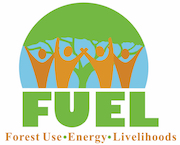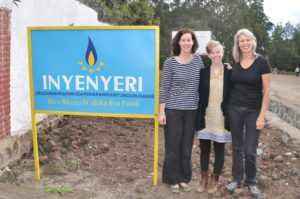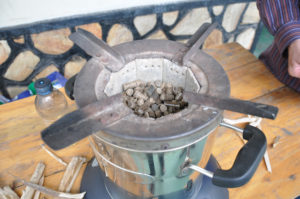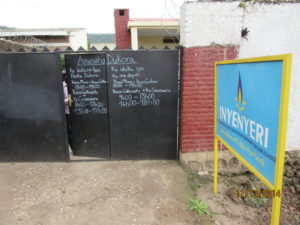Rwanda Inyenyeri Cookstove and Fuel Pellet Impact Evaluation
The FUEL Lab at UNC-CH is involved in an impact evaluation of a for-profit renewable energy company in Rwanda that sells cooking energy in the form of fuel pellets and leases clean cookstoves to customers. Inyenyeri has a novel market-based strategy that has potential to be scaled country-wide. Our study is designed to evaluate the following impacts of adoption and use of fuel pellets and clean cookstoves: exposure of cooks and other household members to carbon monoxide, particulate matter 2.5, and polycyclic aromatic hydrocarbons; health outcomes including acute and chronic respiratory illness, chronic obstructive pulmonary disease, eye disease, and burns; and economic outcomes including consumption and expenditure patterns, time use, and school attendance. The study design is a household-level randomized controlled trial. We interview approximately 1,400 households at baseline and 24 months post intervention. For a sub-sample of 180 households we measure exposures, health indicators and outcomes, and household and intra-household economic and labor trends. A sub-study examines drivers and barriers to adoption and sustained use of the Inyenyeri household energy system. It involves qualitative and quantitative data collection, and objectively measured use of stoves using stove use monitors.
Research themes: Energy Poverty and Environment and Livelihoods
Research team: Ashu Handa (UNC-CH), Pamela Jagger (UNC-CH), Leena Nylander-French (UNC-CH), Karin Yeatts (UNC-CH), Valerie Flax (UNC-CH), Joe Pedit (UNC-CH), Ipsita Das (UNC-CH), Ashley Bittner (UNC-CH), Laterite Africa
Funding: National Institutes of Health (NIEHS), Global Alliance for Clean Cookstoves (GACC)
Duration: 2014 – 2019
Rwanda Inyenyeri Impact Evaluation 2015 Baseline Report: PDF
For more information, read more here.
Project Outputs:
- Jagger, P., I. Das., S. Handa., L. Nylander-French., and K. Yeatts. 2019. Early Adoption of an Improved Household Energy System in Urban Rwanda. EcoHealth. January: 1-14.
- Das, I., J. Pedit., S. Handa., and P. Jagger. 2018. Household Air Pollution, Microenvironment and Child Health: Strategies for Mitigating HAP Exposure in Urban Rwanda. Environmental Research Letters. 13: 145011.
- Jagger, P. and I. Das. 2018. Implementation and Scale-up of a Biomass Pellet and Improved Cookstove Enterprise in Rwanda. Energy for Sustainable Development. 46: 32-41.
- Seguin, R., V. Flax., and P. Jagger. 2018. Barriers and Facilitators to Adoption and Use of Improved cookstoves and Fuel Pellets in Urban Rwanda. PLOS One. 13(10) e0203775.




